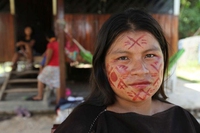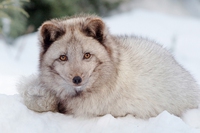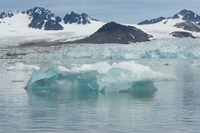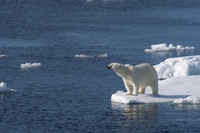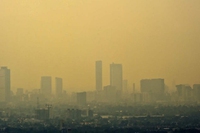
4 megacities to ban diesel cars to cut pollution
Paris, Athens, Madrid and Mexico City are the first megacities to ban diesel cars from their streets in order to reduce air pollution.
Paris, Athens, Madrid and Mexico City are the first megacities to ban diesel cars from their streets in order to reduce air pollution.
Riconosciuti i rischi ambientali del progetto Dakota access pipeline. Una vittoria per i sioux e tutti gli nativi americani. Ma la lotta potrebbe non essere finita.
Il papà di Diana Rios è stato fatto a pezzi perché difendeva la foresta. Anche lei rischia la vita, ma non ha rinunciato a partecipare alla Cop 21.
80 mayors representing over 600 million people are in Mexico City to discuss and improve urban solutions to climate change. This is the sixth edition of the C40 summit.
Il Giappone ha presentato l’ennesimo programma di caccia alle balene per scopi “scientifici” che prevede la soppressione di 314 cetacei per anno, per 12 anni.
Dopo venti anni di assenza le fototrappole del Wwf hanno ripreso due volpi artiche che lasciano intravedere un futuro per la specie in Scandinavia.
Alarming data come from the Arctic Circle. Abnormal temperatures and near-record low sea ice coverage. Experts warn: “Lost ice can’t recover”.
Le condizioni degli zoo in Europa sono pessime. Ma ora possiamo chiedere norme migliori e controlli sul benessere degli animali. La denuncia in mostra a Bruxelles.
From coral bleaching and drought to melting ice and coastal erosion. Here’s a photo gallery that shows the undeniable, appalling effects of global warming.
L’ombra di Trump compatta il resto del mondo che fa fronte comune contro i cambiamenti climatici. Nuove promesse di riduzione previste entro la Cop 24 del 2018.

